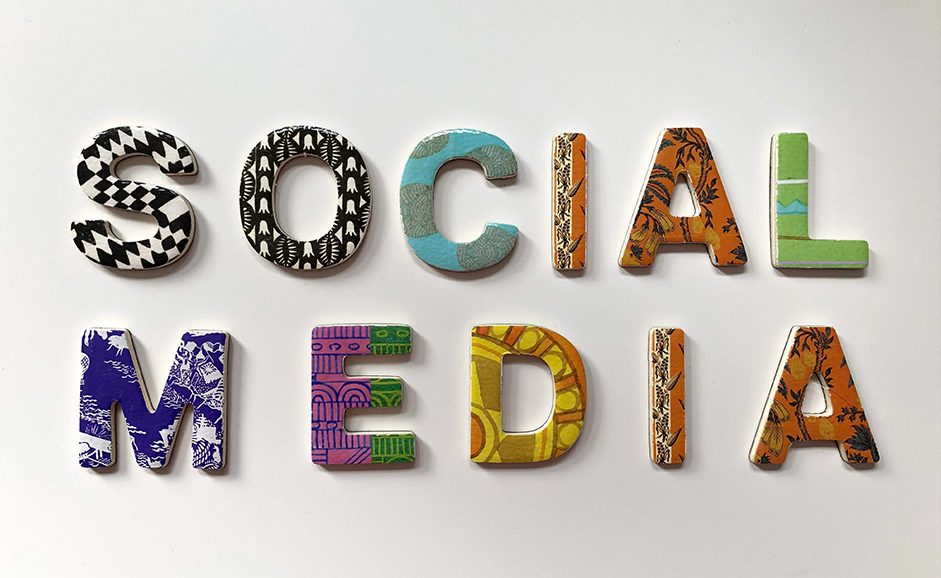The Rise of Social Media: AI and E-commerce on the Spotlight

IAB Spain has recently published its annual report about the use of social media which aims to measure the evolution and outstanding tendencies in networking site usage and quantify its penetration. With a sample of 1.200 interviews, it is the most extensive report on the topic nationwide. The Interactive Advertising Bureau is an international association which empowers the media and marketing industries to thrive in the digital economy. Its membership comprises over 700 leading media companies, brands, agencies, and technology firms responsible for selling, delivering, and optimizing digital ad marketing campaigns.
The study revealed that almost all Internet users in Spain have at least one social profile, representing nearly 30.000.000 people. Similarly, it has been registered that women tend to be more active on social media than men, with a dominance of users aged between 18 and 44. Looking closer, we can see that Facebook is still the most popular platform, followed by Instagram and X. On the contrary, there is a minority of users who don’t have any social profiles. Within this group, some reported having no intention of registering on any platform due to the following reasons: lack of interest, privacy issues, lack of time and fear of becoming addicted.
Another critical point of the report is that the media currently follow brand profiles. This could indicate the still-present power of enterprises in the digital world. Among the most exciting findings, the analysis underscores the boost of AI in the content-creating field and the use of social media as an e-commerce platform. We will review each one of them in this post.
The Role of AI in Content Creation
Artificial Intelligence is defying the limits of content creation and taking our user experience to a whole new level. Far from the destructive role we tend to attribute it, AI tools are being used as creativity boosters. The IAB report claims that 20 % of social media experts use AI for content creation. Some of the benefits of including AI software in our brand strategy are:
Saving time: Delegating simple tasks to AI allows professionals to focus on other duties and invest their time in more important matters.
Planning posts: AI enhances content according to the target’s digital behavior to have a more significant impact and obtain more engagement.
Analyzing feelings and emotions: Many AI tools study users’ emotions regarding a particular post, enabling businesses to understand how their audiences feel about their content.
Identifying patterns and tendencies: AI software is ideal for analyzing data and taking advantage of the opportunities before the competence.
Automating management tasks: answering the user’s questions and requests.
Although ChatGPT is currently the most known platform, other tools are beginning to catch on among professionals:
Runway:has several features, such as converting texts to 3D images, generating pictures, optimizing audio, adding subtitles, etc.
Synesthesia: this innovative solution allows the creation of videos by including a text narrated by a voice actor.
Lexica: one of the best AI tools in image generation because of its exclusive prompts.
Nonetheless, an abusive turn to AI can lead to repetitive or superfluous content and, in a final stage, to the loss of brand credibility. Remember that, in excess, everything becomes a potential threat.
Social Media as E-commerce Platforms
When social media first emerged, it was designed for people to connect with one another. But as platforms developed and user bases grew, businesses saw an opportunity to reach their customers in innovative ways. Nowadays, it seems unimaginable for any business to launch without a social media presence. Companies use social media for customer service, branding, and selling platforms.
In line with this idea, the report states that social sites are still being used to share information about brand products or services, especially among veteran users. Almost half of the interviewees used social media to compare specific products. At the same time, 21 % of the polled bought directly on social networking sites (with YouTube, Instagram, and Facebook as leading e-commerce platforms), and 36 % confessed to having been influenced by social media when making buying decisions.
Following a Wonnda post, selling products on Instagram presents a valuable digital marketing opportunity for businesses of all sizes. The most bought products during 2023 were phone accessories, make-up, artwork, candles, jewellery, fitness accessories, home décor and self-care.
In conclusion, the social media field is experiencing a huge revolution. Since the birth of the metaverse (or the set of digital spaces in which we socialize, learn and make connections), it has become impossible not to get involved with the “other world”. The current discussion is whether this new reality will continue rising or, on the contrary, will succumb to the masses.
Stay tuned!



